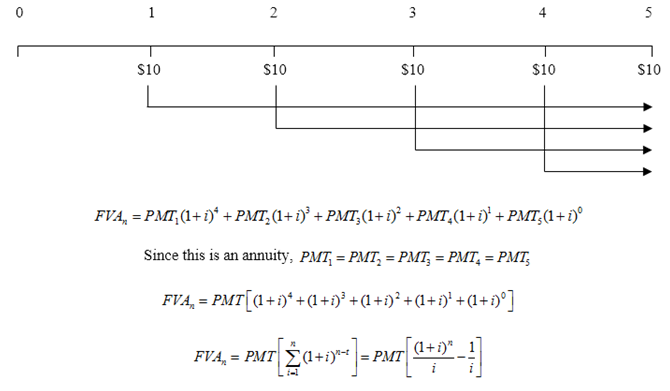File Name: Simulation – Time Value of Money
Location: Modeling Toolkit | Risk Simulator | Time Value of Money
Brief Description: Illustrates how to solve time value of money problems, and how to add simulation to time value of money problems to account for uncertainties
Requirements: Modeling Toolkit, Risk Simulator
Time value of money (TVM) is one of the most fundamental yet important concepts in the world of finance and decision analysis. It provides a robust framework to value and decide the best course of action among multiple projects, based on an equal footing. For instance, one project might have a 10-year life providing high cash flow returns in the future but also costs more while another costs less and returns slightly lower cash flows. By applying TVM methods, the net present value (NPV) of a project can be easily determined, and the correct and optimal course of action can be taken. The examples in the file start off easy with the basics of future value and present value, then on to annuities with equal payments per period. Then we have different period analysis (monthly versus annual payments), NPV, internal rate of return, and return on investment analysis. A TVM amortization table example is also presented.
Clearly, these are simple, getting-started examples. Also, see the Simulation –Discounted Cash Flow, Return on Investment, and Volatility Estimates chapter for an example of a more protracted NPV analysis with various end-of-period, beginning-of-period, discrete discounting, and continuous discounting approaches. Some quick manual computations are shown here. The examples in the Models worksheet use Excel functions as well as manual computations.
Figure 145.1 illustrates the basic theoretical concepts of the time value of money. The Excel worksheet model provides more step-by-step examples of these applications.
Future Value
As an example, if you saved $100 today in a savings account yielding 5% a year, how much will you have at the end of 3 years?

Present Value
Similarly, we can compute the PV manually as well as by using Excel’s PV function:

Ordinary Annuities

Figure 145.1: The underlying theory of time value of money

